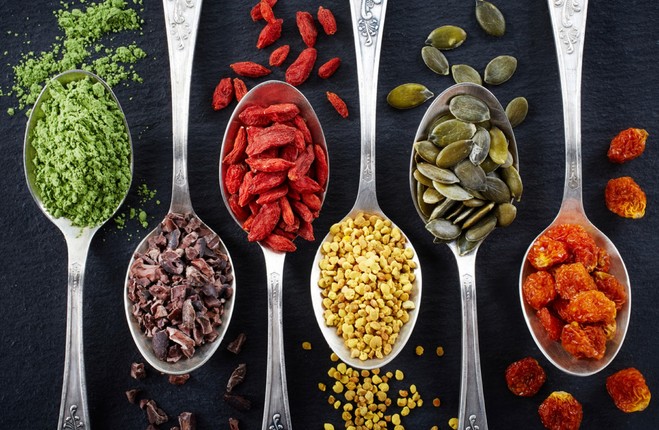THE TERM ‘SUPERFOOD’ is something we hear more and more of in relation to nutrition.
A loose definition suggests they’re nutrient-dense foods that provide us with anti-oxidants and essential nutrients we’re unable to process ourselves.
But one of the country’s top nutrition experts has other ideas, and pretty much rubbishes some of their purported claims.
Barry Murray, founder of OptimumNutrition4Sport, doesn’t mince his words and makes the argument that you can get all you need without falling for marketing gimmicks.
“Food is super – real food that is. If a food needs a claim on the label, the chances are it’s not true,” he said.
“We all know broccoli is good for us but have you ever seen broccoli labelled with the term “superfood”?
“In other words, the term superfood is simply a ploy devised to make you, the consumer, buy the product.”
And it clearly works because one such superfood is acai berries from Brazil.
The berries have reported gross annual profits of $200million in the US but 10 years ago, they were practically unavailable and never heard of outside of Brazil.
Murray furthers his point by saying; “There’s plenty of evidence to show that our ancestors didn’t suffer from modern day illnesses and diseases such as diabetes, metabolic syndrome and obesity. Yet they never had any “superfoods”.
It’s a clever strategy and one that’s worked very well because sales of acai berries, goji berries, chia seeds and rapeseed oils have soared over recent years.
Of the above two, chia seeds and goji berries, some facts that have been presented to the public don’t sit well with Murray.
“Chia seeds are tiny black seeds native to South America. The superfood health claim is they’re high in Omega 3 fats.
“However, the seeds are known to contain a type of omega 3 fatty acid known as Alpha Linolenic Acid (ALA). This is not the active form of omega 3 needed for our health. The omega 3 fatty acids that play the important roles are EPA and DHA.
“The conversion of ALA to EPA and DHA is very poor and he best sources of EPA and DHA come from fish and shellfish.
“So while chia seeds are high in ALA, this is not the type of omega 3 that we actually need. Thus, it is essentially a false claim.”
And goji berries aren’t spared either.
“These are grown in Asia and have been sold in their dried form as well as various juice forms.
“The claims range from reducing cancer risks to improving fertility yet there are zero studies to verify this.
“The main health claims are they contain all the essential amino acids and are higher in iron than spinach.
“First of all, any berry is extremely low in total protein content. 100g of goji berries will give you around 12g of protein. That’s a lot of berries to eat when 1 egg will do the same.
“Iron is an important mineral but the iron present in these goji berries – which is supposed to help you, is very poorly absorbed by the body
“So yet again, another false claim.”
Though he does state neither chia seeds or goji berries are necessarily bad for us, given the anti-oxidants in them, the point is, they have no discernible advantage over real foods such as everyday vegetables, meats, fish, fruits and dairy products which have no glossy health label.
Barry Murray has worked with some of the country’s top athletes and intercounty players and is currently based in France with some of the world’s top professional cyclists.
